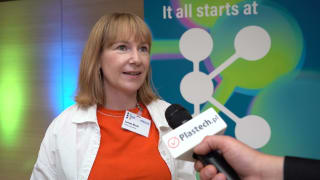 New printing technology turns the can into an even more effective communication medium.
New printing technology turns the can into an even more effective communication medium.Breakthrough for digital printing: Ball Packaging Europe will in future supply individually designed containers in addition to conventionally printed cans thanks to an innovative technology. Using a special drop-on-demand process, it will be possible to print cans each with a different design - in brilliant photo quality with 600 dpi resolution.
A viable technical solution for the digital printing of cans has been developed by Ball Packaging Europe in cooperation with the British company Tonejet. In the first quarter of 2009 Ball Packaging Europe will integrate a pilot machine into an existing production line in its manufacturing plant in Haßloch, Germany. The company will then for the first time be able to supply limited quantities of digitally designed & printed cans for the markets.
The digital printing technology opens up new marketing potential for key customers of the can maker based in Ratingen: In future it will be possible to focus on specific highlights for smaller events or for topical or regional promotional campaigns.
Thanks to the new printing technology from Tonejet, Ball Packaging Europe is able to give each and every can its own specific design. In contrast to conventional printing techniques, the advantage of digital printing is that a digital print head prints the top quality design with a resolution of 600 dpi directly on to the can surface in a similar manner to a conventional inkjet printer used in the office. Complicated design changes required when using conventional printing machines are therefore a thing of the past.
- The main feature which distinguishes digital printing from conventional printing processes is that neither printing plates, nor cylinders nor printing blankets are used - that is how Robert Jansen, Director Innovation at Ball Packaging Europe, explains the benefits of the modern process. - We have achieved excellent pre-press quality with digital printing.
Ray Southam, CEO of Tonejet, adds: - Using our product, Ball Packaging Europe will be able to gain a substantial advantage on the market." Ball Packaging Europe is the exclusive client for this technology in the field of can printing and is continuing to develop it in cooperation with Tonejet.
Another advantage of digital printing: The lead time for printing cans is significantly shorter. In contrast to conventional printing technology, the pre-press facility processes are not required in digital printing; the beverage can is printed directly without any intermediate steps. This allows the beverage can to come to the fore as a communication medium for short-term, topical campaigns.
- For instance, it will be possible to find cans printed with photos of the current winners of Olympic medals in London for the 2012 Olympics on supermarket shelves the next day - explains Jansen.
- We envisage a whole range of additional applications for digitally designed beverage cans - explains Jansen. - Suitability for events is obvious. In addition the new printing technology is ideal for our key customers when re-positioning products in the energy and functional drinks segments for example. Such products are frequently found in the premium sector. Consumers associate them with a high degree of innovativeness and we can underline this by supplying cans with innovative designs.
Ball Packaging Europe is one of the leading beverage can makers in Europe with 2,700 employers and twelve production sites in Germany, France, the United Kingdom, the Netherlands, Poland and Serbia. The company is a subsidiary of Ball Corporation, which produces high quality metal and plastic packaging for the beverage, food and household goods industries. In addition Ball Corporation supplies aerospace technology as well as other technologies and services predominantly to the US American government. Ball Corporation and its subsidiaries employ more than 15,500 staff worldwide and reported 2007 sales of 7.4 billion US dollars.


